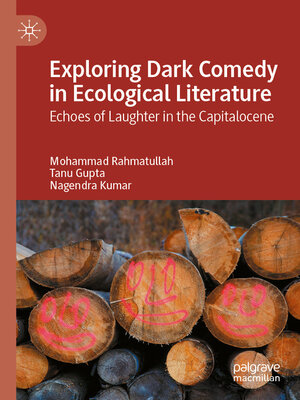Exploring Dark Comedy in Ecological Literature
ebook ∣ Echoes of Laughter in the Capitalocene · Literature, Cultural and Media Studies
By Mohammad Rahmatullah

Sign up to save your library
With an OverDrive account, you can save your favorite libraries for at-a-glance information about availability. Find out more about OverDrive accounts.
Find this title in Libby, the library reading app by OverDrive.



Search for a digital library with this title
Title found at these libraries:
| Library Name | Distance |
|---|---|
| Loading... |
In this textbook, ‘dark comedy’ is re-imagined as an ecological instrument: a volatile compound of irony, grotesquerie, and mischievous insight that exposes the carbonised scaffolding of late-capitalist life. Rather than sneering at catastrophe, the chapters anatomise the mechanics—defamiliarising punch line, carnival inversion, affective whiplash—by which humour slips past guard-dogs and rouses an anaesthetised public. The horizon against which this inquiry unfolds is the Capitalocene: a name that indicts capitalism, not “Man,” as the principal geological agent of ruin.
Moving from Aristophanes to Atwood, from street theatre to streaming satire, each text shows laughter doing intellectual lifting. In one moment it fractures complacent common sense; in the next it stitches together circuits of feeling in which eco-grief can transmute into civic resolve. Juxtaposed with the authority of tragic form, dark comedy proves the more permeable solvent: it dissolves cultural defences, lets paradox breathe, and leaves readers wondering how ecosystems became punch-lines.
Methodologically the book is multidisciplinary. Literary tangles with environmental philosophy; humour theory quarrels with eco-Marxism; cultural studies supplies the ethnographic grit that keeps abstraction honest. By braiding those strands the argument departs from standard ecocritical curricula, insisting that jokes are not side-shows but catalytic sites where ethics, affect, and political economy collide.
Designed for advanced undergraduates yet hospitable to researchers, the volume refuses the consolations of easy optimism even as it gestures toward actionable hope. Its wager is simple: teach readers to hear the subversive crackle inside dark laughter and they may also learn to re-script the damaged world that provokes it.







